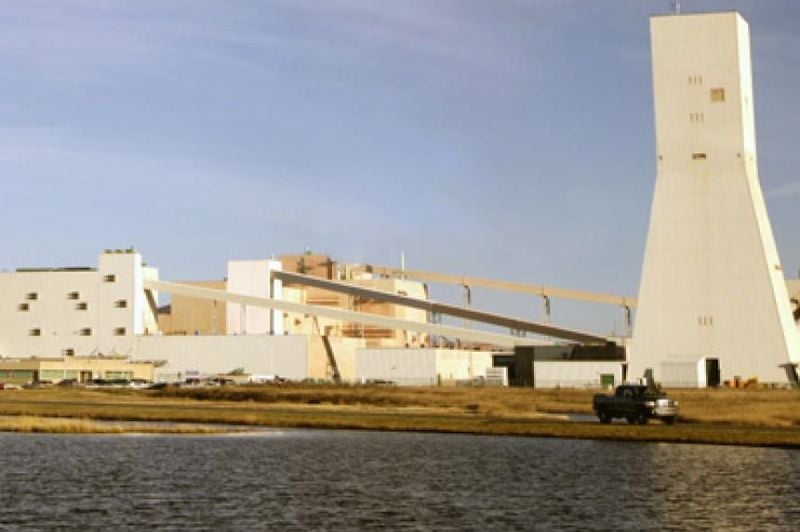CNS Canada — After clearing their regulatory hurdles, Canada’s Agrium and PotashCorp merged at the start of 2018 to become the world’s largest fertilizer company, Nutrien.
The partner companies had made various promises at the time and many in Western Canada were cautious, hoping for the best but not fully knowing what to expect.
A year later, Nutrien has begun to settle into its new role in the agriculture world — and according to retailers and producers it hasn’t really shaken things up all that much.
Read Also

U.S. grains: Wheat futures rise on supply snags in top-exporter Russia
U.S. wheat futures closed higher on Thursday on concerns over the limited availability of supplies for export in Russia, analysts said.
However, a few aspects of the merger still have many in Western Canada cautiously watching.
“I don’t want to pretend to call it a non-event because there’s always a concern about consolidation and all I can say at the moment is it doesn’t have any obvious impact,” said Ray Redfern of Redfern Farm Services in southwestern Manitoba.
Before the merger, Redfern, an independent crop input retailer, sold both Agrium and PotashCorp products. Most Agrium products were bought directly from the company, while PotashCorp products were bought through a middleman, Agrico.
Since the merger, those purchases have continued as before. Redfern estimated, though, that an increasing portion of purchases are now being bought directly through Nutrien.
On the producer side, the merger remains a wait-and-see game as many of the new company’s changes are still ongoing, according to Todd Lewis, president of the Agriculture Producers Association of Saskatchewan (APAS).
“There were some concerns, I know, in some areas with the amalgamations that there was going to be lost capacity, as far as delivery opportunities and picking up fertilizer,” he said.
In July, Nutrien rebranded Agrium’s Crop Production Services retailers as Nutrien Ag Solutions and invested money in upgrades to the retailers.
Lewis expected producers will find out this spring when they go to pick up fertilizer if the changes helped to improve wait times for pickups.
Out of office
There is concern from producers, though, if Nutrien will follow through with all of the promises it made before the merger, according to Lewis.
“A lot (of the news) about (Nutrien) in the media is about the head office here in Saskatchewan. I think Saskatchewan producers see that and kind of wonder about some of the promises that were made, if that wasn’t being kept, are some of the other ones at risk as well.”
Before the merger Nutrien had promised Saskatchewan it would keep Saskatoon, the home city for PotashCorp’s headquarters, as its head office location. PotashCorp was originally a provincial Crown corporation and when it was privatized in 1989, legislation required PotashCorp and any successors to maintain a head office in Saskatchewan.
Since the merger, though, almost all of Nutrien’s executives have been based out of the company’s Calgary office.
One unexpected change made by Nutrien was the company’s decision in February to shut down phosphate production at its facility near Redwater, Alta., northeast of Edmonton.
The Redwater plant, owned by Agrium before the merger, was the only phosphate manufacturer in Canada, while PotashCorp had phosphate facilities in the United States. For cost savings, Nutrien decided to move all of its phosphate production to the U.S.
Independent retailers have been warned by Nutrien they will have to ship phosphate in themselves, Redfern said.
However, for retailers in Manitoba such as Redfern Farm Services, Nutrien has said it will still distribute phosphate product from its facility near Portage la Prairie.
The shift to U.S.-made phosphate products has provided an incentive for more competition in the market. Before the merger, Agrium had the advantage of being the only retailer of Canadian phosphate products.
However, now that all phosphate products will be coming from outside of Canada, other retailers have started to expand their physical presence in Canada.
“(We’re hoping) that added competition here will bring fertilizer prices down, (or) at least keep (them) throttled a little bit anyway because we need good competition to make sure we’re paying a fair price,” Lewis said, adding Nutrien has assured farmers they won’t end up paying more for phosphate because of the closure.
— Ashley Robinson writes for Commodity News Service Canada, a Glacier FarmMedia company specializing in grain and commodity market reporting. Follow her at @AshleyMR1993 on Twitter.




















